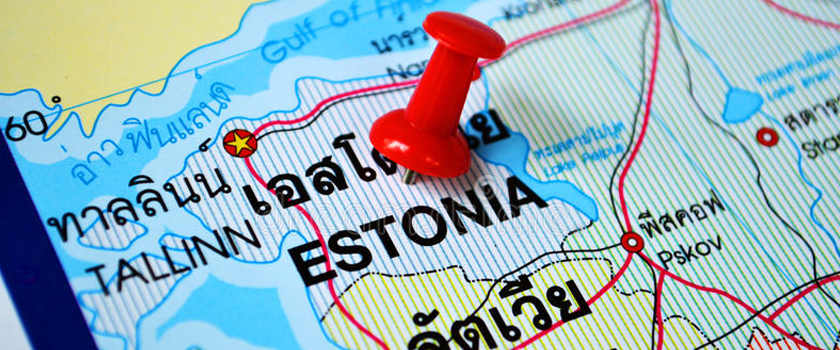I. Economic Environment
As a member of the European Union, Estonia’s economy is rated as high income by the World Bank. Beginning 1 January 2011, Estonia adopted the euro and became the 17th euro-zone member state. Estonia today is mainly influenced by developments in Finland, Sweden and Germany – the three main trade partners. The government recently increased greatly its spending on innovation.
A balanced budget, almost non-existent public debt, flat-rate income tax, free trade regime, competitive commercial banking sector, innovative e-Services and even mobile-based services are all hallmarks of Estonia’s market economy.
II. Possible translation services needed
a) Limitations of resource
Estonia is a dependent country in the terms of energy and energy production. In recent years many local and foreign companies have been investing in renewable energy sources. The importance of wind power has been increasing steadily in Estonia and currently the total amount of energy production from wind is nearly 60 MW while at the same time roughly 399 MW worth of projects are currently being developed and more than 2800 MW worth of projects are being proposed in the Lake Peipus area and the coastal areas of Hiiumaa.
b) Imports and exports
Estonia exports mainly machinery and equipment, wood and paper, textiles, food products, furniture, and metals and chemical products. Estonia also exports 1.562 billion kilowatt hours of electricity annually. At the same time Estonia imports machinery and equipment, chemical products, textiles, food products and transportation equipment. Estonia imports 200 million kilowatt hours of electricity annually.
c) Languages
The official language, Estonian, belongs to the Finnic branch of the Uralic languages. Estonian is thus closely related to Finnish, spoken on the other side of the Gulf of Finland, and is one of the few languages of Europe that is not of an Indo-European origin. Despite some overlaps in the vocabulary due to borrowings, in terms of its origin, Estonian and Finnish are not related to their nearest geographical neighbors, Swedish, Latvian and Russian, which are all Indo-European languages.
Russian is still spoken as a secondary language by forty- to seventy-year-old ethnic Estonians, because Russian was the unofficial language of the Estonian SSR from 1944 to 1991 and taught as a compulsory second language during the Soviet era. Both Swedish and Estonian are co-official languages, and there are 22 villages with officially bilingual names. The most common foreign languages learned by Estonians are English, Russian, Finnish, German and Swedish.
Read Also: Transportation Translation Service
III. Advantaged sectors
Food, construction, and electronic industries are currently among the most important branches of Estonia’s industry. Other important industrial sector is the machinery and chemical industry. Oil shale energy, telecommunications, textiles, chemical products, banking, services, food and fishing, timber, shipbuilding, electronics, and transportation are key sectors of the economy.
Estonia has a strong information technology sector, partly owing to the Tiigrihüpe project undertaken in mid-1990s, and has been mentioned as the most “wired” and advanced country in Europe in the terms of e-Government of Estonia.
IV. Why we are good
With vast reserves of talented linguists of many different nationalities and a highly effective coordination mechanism in place, CCJK is able to provide most precise and in-context translation services with ultra productivity in most world languages, which include but are not limited to:
Arabic, Austrian, Bengali, Bulgarian, Burmese, Catalan, Chinese Simplified, Chinese Traditional, Croatian, Czech, Danish, Dutch, English, Estonian, Finnish, French, Georgian, German, Greek, Hebrew, Hindi, Hmong, Hungarian, Indonesian, Italian, Japanese, Kazakh, Khmer, Korean, Lao, Latvian, Lithuania, Malay, Malayalam, Norwegian, Persian(Farsi), Polish, Portuguese, Romanian, Russian, Serbian, Slovak, Slovenian, Somali, Spanish, Swedish, Tagalog, Tamil, Thai, Turkish, Ukrainian, Urdu, Uzbek, Vietnamese and 398 more Languages!
Over 10 years of experience in world language translation has helped CCJK accumulate extensive experience in the translation of various types of document in different file formats. To meet the challenges in handling discrepant technicalities, CCJK has gathered an elite engineering team with corresponding software expertise to provide fundamental support to the document translation services.
V. Confidentiality
All CCJK linguists are bound by a commercial confidentiality and corporate nondisclosure agreement. CCJK takes confidentiality and security issues very seriously. All translations remain confidential.
Contact Us
Anytime, anywhere, we can help you out by our standard translation. Please feel free to contact us now. And say goodbye to the headache of dealing translation problems.
Shenzhen
Rm 902, JiaDa Building, No. 5 SongPingShan Road, High-Tech Industrial Park (N),
Nanshan District, Shenzhen 518057 China
Tel:+86-755-8611-7878
Fax:+86-755-8611-7978
Changsha
Rm 1903, Block A, South Tower, 202 Building, No. 882 Wuyi Avenue, Kaifu District, Changsha, Hunan 410005, P. R. China
Tel:+86-731-8386-9978
Fax:+86-731-8273-0725









